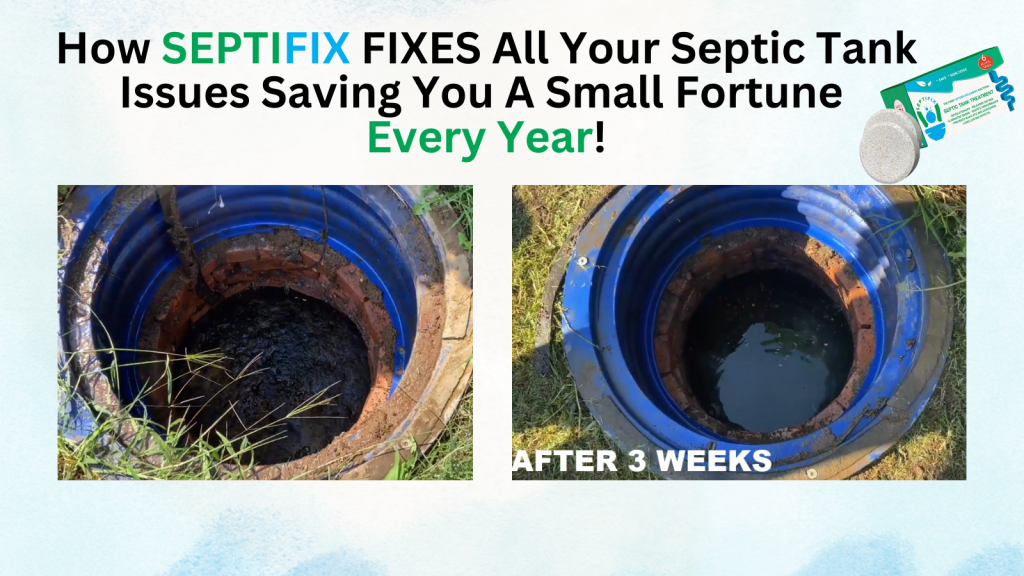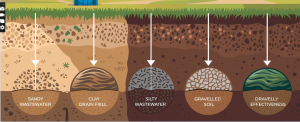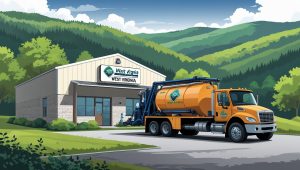A septic system must follow strict regulations in Georgia. Failing to comply can lead to fines, legal consequences, and environmental hazards. The penalty for illegal septic system in Georgia varies based on the severity of the violation. Understanding Georgia’s septic laws helps homeowners and contractors avoid costly mistakes. This article covers penalties, legal requirements, common violations, and how to ensure compliance.
Table of Content
- What Constitutes an Illegal Septic System in Georgia?
- Penalties for Illegal Septic Systems in Georgia
- Georgia Septic Regulations & Compliance Requirements
- Common Violations and How to Avoid Them
- What to Do If You Have an Illegal Septic System
- Helpful Contacts & Resources
- Septifix
- Septic Permit Links by State
- Septic Permit Forms By State
What Constitutes an Illegal Septic System in Georgia?
An illegal septic system is any onsite sewage management system that does not meet state or local requirements. Common violations include:
- Unpermitted installations – Constructing a private septic system without a permit.
- Improper placement – Installing a system too close to water sources or property lines.
- Unapproved modifications – Expanding or altering a system without proper authorization.
- Failing systems – Leaking or overflowing onsite wastewater treatment systems.
- Bypassing treatment – Directly discharging wastewater onto land or into waterways.
Local health departments enforce Georgia’s septic regulations to protect public health and prevent environmental contamination.
Penalties for Illegal Septic Systems in Georgia
The penalties for illegal septic systems vary by county but may include:
- Fines – Homeowners can face fines ranging from $100 to $1,000 per violation.
- Legal action – Severe cases can lead to misdemeanor charges or lawsuits.
- System removal – Homeowners may be required to replace or remove non-compliant systems.
- Property sale restrictions – Selling a home with an illegal onsite wastewater disposal system can delay or block the transaction.
- Increased repair costs – Fixing an illegal system often costs more than a properly installed system.
Georgia Septic Regulations & Compliance Requirements
Georgia follows state and local regulations for septic system installations and maintenance. Key requirements include:
- Permit approval – A permit is required before installing or modifying a septic system.
- Soil and site evaluation – A licensed professional must inspect soil conditions before installation.
- Regular maintenance – Routine inspections and pumping are required to keep systems functional.
- Property transfer inspections – Some counties require inspections before selling a home with a sewage disposal system.
Local county health departments oversee these regulations and ensure compliance.
Common Violations and How to Avoid Them
Many homeowners unknowingly violate septic laws. Here are common mistakes and how to avoid them:
- Installing without a permit – Always obtain the necessary permits before installation.
- Using an undersized system – Ensure the system is designed for the property’s wastewater output.
- Skipping maintenance – Have a professional inspect and pump the system every 3–5 years.
- Ignoring drainage issues – Fix leaks, pooling water, or slow drains immediately.
- Selling a home with a non-compliant system – Ensure compliance before listing the property.
What to Do If You Have an Illegal Septic System
If you discover your private septic system is illegal, take action immediately:
- Contact your local health department – They provide guidance on necessary corrections.
- Hire a licensed septic contractor – A professional can assess and repair non-compliant systems.
- Apply for the proper permits – If required, obtain approval to bring the system into compliance.
- Upgrade or replace the system – If repairs are insufficient, a new onsite wastewater disposal system may be needed.
- Document all work – Keep records of inspections, repairs, and permits for future reference.
Helpful Contacts & Resources
For more information on septic system regulations in Georgia, consider these resources:
- Georgia Department of Public Health (DPH) – https://dph.georgia.gov/
- Local County Health Departments – Contact your county’s environmental health office.
- Georgia Environmental Protection Division (EPD) – https://epd.georgia.gov/
- Georgia Onsite Wastewater Association (GOWA) – Offers guidance on system maintenance and compliance.
- Licensed Septic Contractors – Find a certified professional through Georgia’s DPH website.
Conclusion
The penalty for illegal septic system in Georgia can be costly and legally challenging. Avoid fines and legal trouble by ensuring your onsite wastewater treatment system meets state and local regulations. If you suspect non-compliance, take immediate action by consulting local authorities or a licensed contractor.
Septifix

What Types of Regional Soil Work Best for Septic Systems?
Septic Tanks in Rural Areas: A Practical Guide for Homeowners
Directory | Wyoming Septic Service Providers : Best Professionals
Directory | Wisconsin Septic Service Providers | Part 3
Directory | Wisconsin Septic Service Providers | Part 2
Directory | Wisconsin Septic Service Providers | Part 1
Directory | West Virginia Septic Service Providers : Best Professionals
Winter Pumping: Should You or Shouldn’t You?
Septic Permit Links by State










